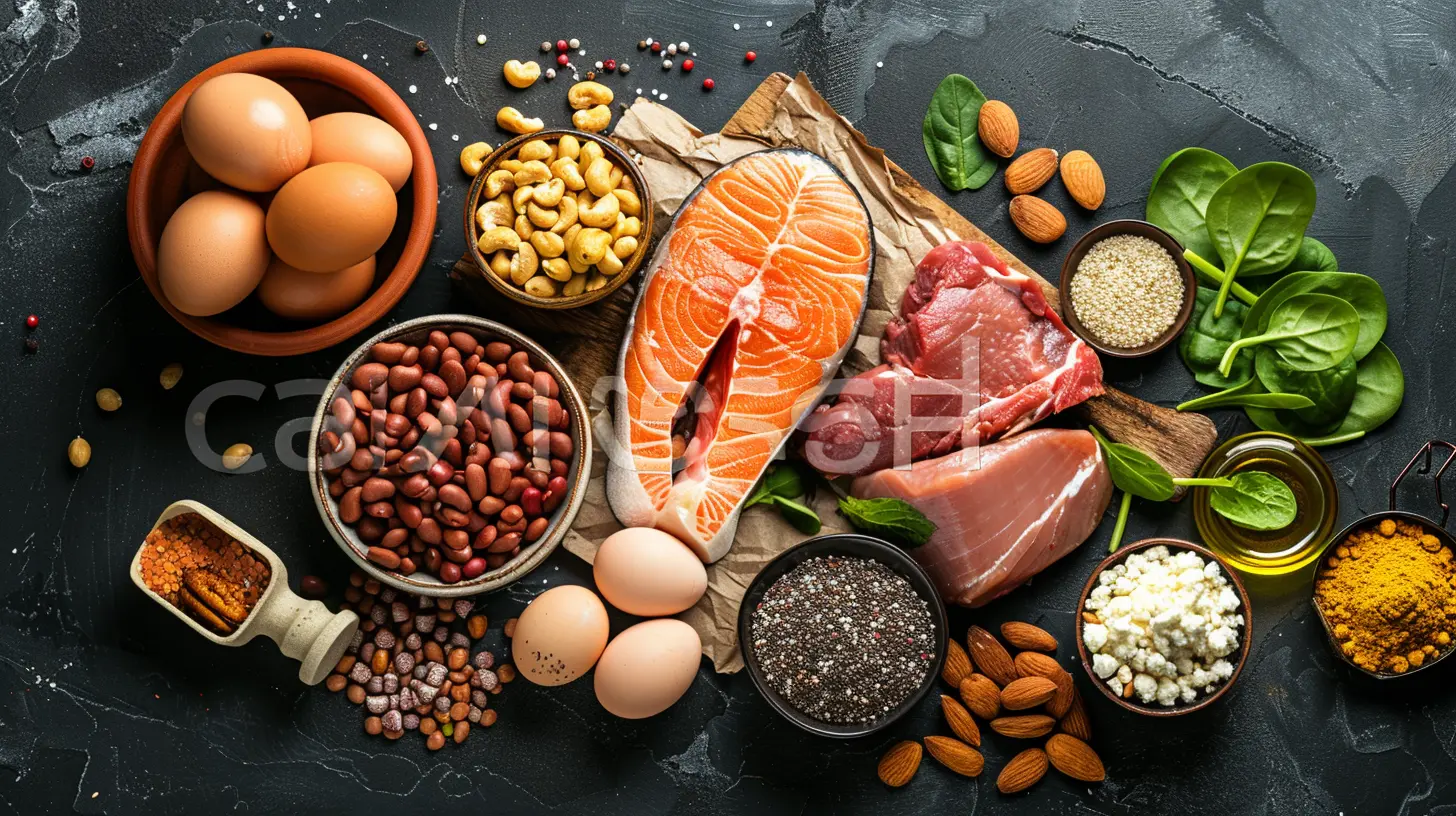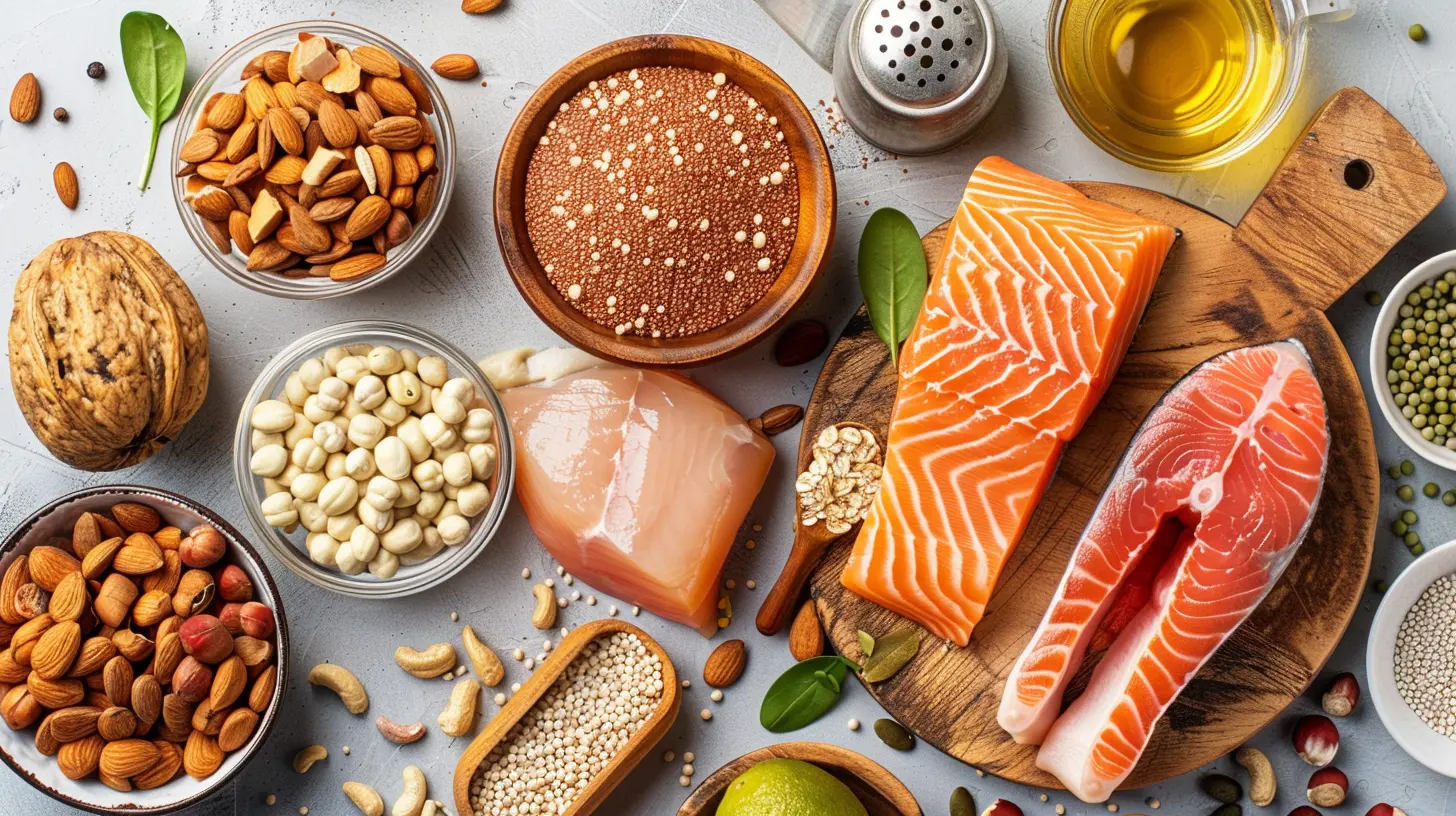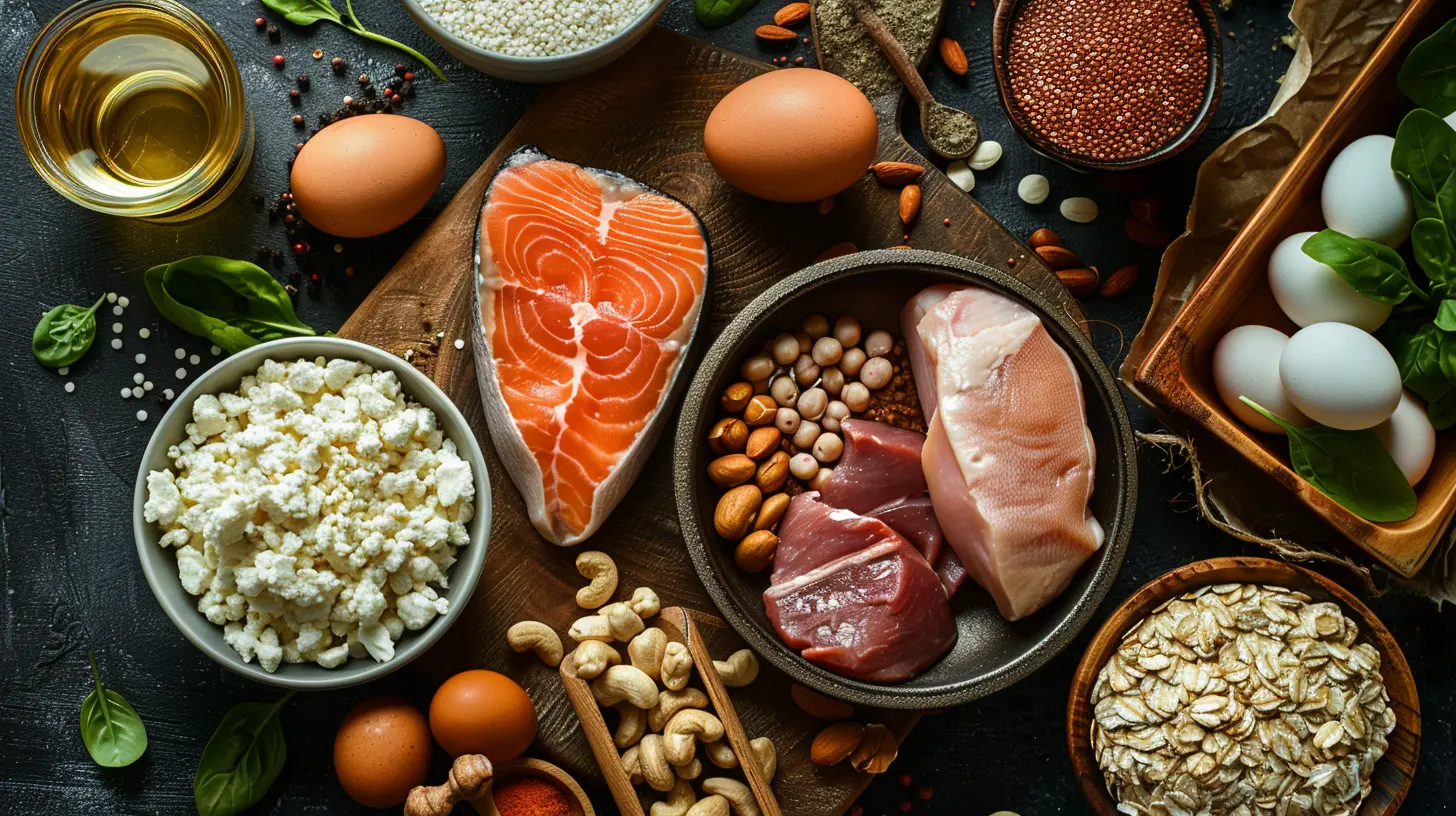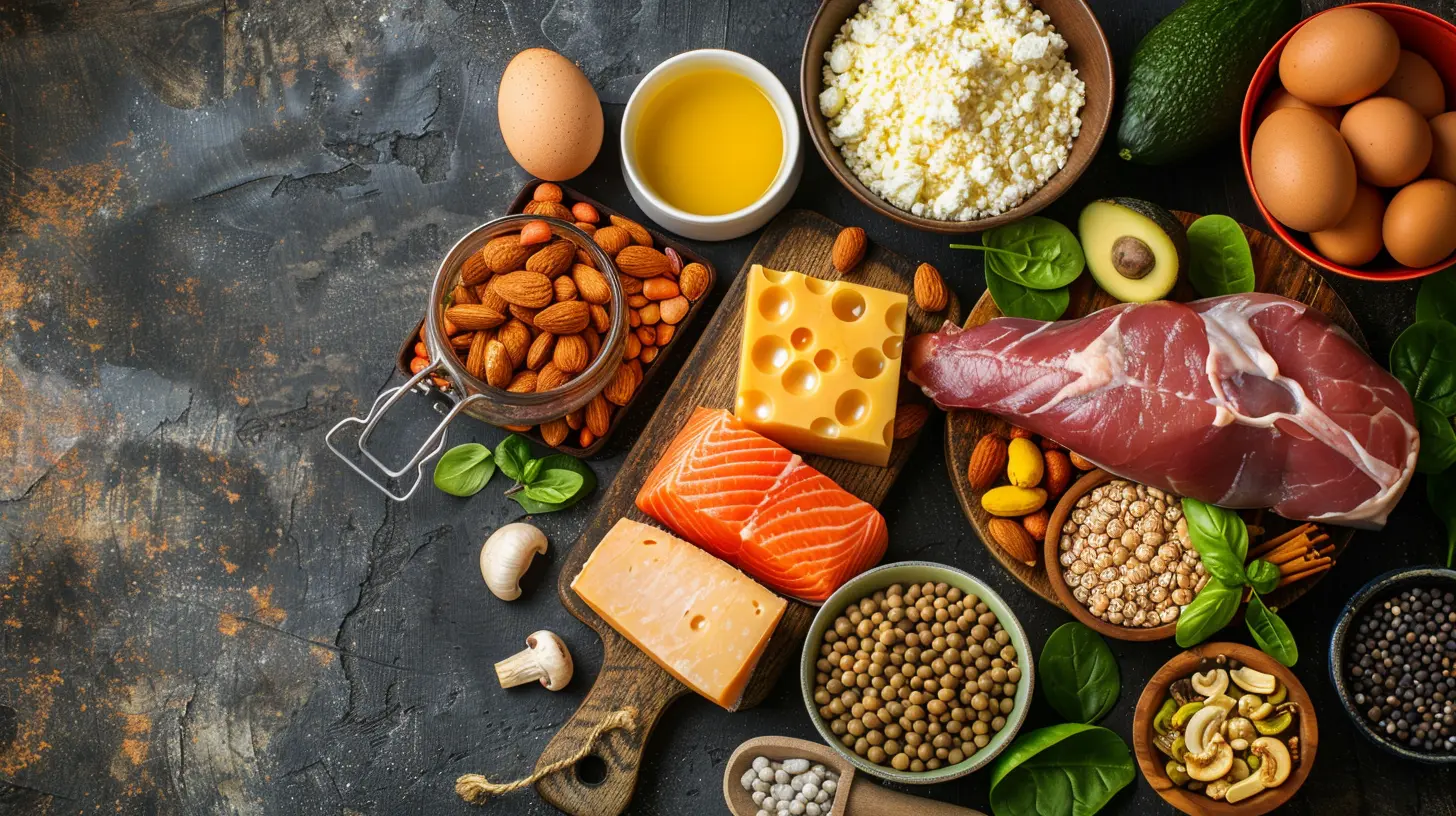Protein and Workouts: The Best Foods for Muscle Recovery
5 July 2025
When it comes to building muscle and recovering from workouts, protein is king. But not all protein sources are created equal. If you’re pushing hard in the gym, your body needs the right nutrients to repair and grow stronger. So, what are the best foods for muscle recovery? Let’s break it down.

Why Is Protein Important for Muscle Recovery?
Every time you lift weights, sprint, or push your body to its limits, tiny tears form in your muscle fibers. This process is natural, and with the right fuel, your body repairs these tears, making your muscles stronger. Protein plays a vital role in this process because it provides amino acids—the building blocks of muscle tissue.Skipping protein after a workout is like trying to build a house without bricks. You simply won’t see the strength and growth you’re working so hard for.

How Much Protein Do You Need?
The amount of protein you need depends on your fitness goals, body weight, and activity level. A general rule of thumb:- Casual exercisers (light workouts a few times a week): 0.8-1.2 grams of protein per kg of body weight
- Regular lifters & athletes: 1.4-2.0 grams per kg
- Bodybuilders or those in intense training: 2.0-2.5 grams per kg
For example, if you weigh 70 kg (154 lbs) and you're training seriously, you'd need 98-140g of protein daily.

Best Protein-Rich Foods for Muscle Recovery
Not all protein sources are equal. Some are packed with essential amino acids, while others might lack complete protein profiles. Here’s a list of the top foods for muscle recovery to help you rebuild efficiently.1. Eggs – The Ultimate Protein Powerhouse
Eggs are one of the most complete protein sources you can eat. They contain all nine essential amino acids, plus healthy fats and vitamin B12, which helps with energy production.Why they’re great:
- High-quality protein (about 6g per egg)
- Rich in leucine, an amino acid crucial for muscle repair
- Easy to digest and versatile
> Best way to eat: Scrambled, boiled, or in an omelet post-workout.
2. Chicken Breast – Lean and Packed with Protein
Chicken breast is a staple for a reason—it’s loaded with protein while being low in fat, making it ideal for muscle repair without unnecessary calories.Why they’re great:
- About 31g of protein per 100g
- Low in saturated fat
- Packed with B vitamins to aid energy production
> Best way to eat: Grilled, roasted, or shredded in a salad.
3. Salmon – Omega-3s for Recovery Boost
Salmon isn’t just about protein; it’s also rich in omega-3 fatty acids, which help reduce inflammation and speed up recovery.Why they’re great:
- About 25g of protein per 100g
- Fights muscle inflammation
- Loaded with vitamin D, which improves muscle function
> Best way to eat: Baked with lemon and herbs or in a protein-rich salad.
4. Greek Yogurt – Double the Protein of Regular Yogurt
Greek yogurt is a post-workout winner. It’s packed with casein and whey, two types of protein that help with muscle repair.Why it’s great:
- Casein protein digests slowly, providing sustained recovery overnight
- Whey protein absorbs fast, helping muscles rebuild
- Contains probiotics, which support digestion and nutrient absorption
> Best way to eat: Pair with berries and nuts for a power-packed snack.
5. Cottage Cheese – The Underrated Muscle Food
Cottage cheese is another casein-rich food, which means it slowly releases protein to support muscles while you sleep.Why it’s great:
- About 28g of protein per cup
- Packed with calcium, essential for muscle contractions
- Keeps you full for longer
> Best way to eat: On whole-grain toast or mixed with fruit.
6. Lentils – A Plant-Based Muscle Builder
For vegetarians and vegans, lentils are a fantastic protein source. They pack a powerful punch of protein and fiber, aiding digestion and recovery.Why they’re great:
- About 18g of protein per cooked cup
- Loaded with iron, which helps deliver oxygen to muscles
- Rich in fiber to support gut health
> Best way to eat: In soups, salads, or as a side dish.
7. Tuna – Quick and Protein-Dense
Tuna is a convenient, high-protein food loaded with omega-3s and B vitamins to optimize muscle repair.Why it’s great:
- About 25g of protein per 100g
- Low in fat but packed with essential nutrients
- Reduces muscle soreness and inflammation
> Best way to eat: Mixed with Greek yogurt as a sandwich spread or in a salad.
8. Quinoa – The Complete Plant-Based Protein
Unlike most plant-based foods, quinoa contains all nine essential amino acids, making it a complete protein source.Why it’s great:
- 8g of protein per cooked cup
- Also rich in magnesium, which helps prevent muscle cramps
- High in fiber, promoting good digestion
> Best way to eat: As a side with grilled chicken or in a grain bowl.

What About Protein Supplements?
Whole foods should always be your first choice, but protein powders can fill the gaps when needed. Whey protein, casein, and plant-based options like pea or hemp protein can be great additions to your diet.Best time to take protein supplements?
- Immediately post-workout for quick absorption
- Before bed (casein protein) for overnight recovery
Other Nutrients That Help Muscle Recovery
While protein is crucial, don’t forget about these key nutrients:- Carbs: Help replenish glycogen stores (sweet potatoes, brown rice, oats)
- Healthy Fats: Reduce inflammation (avocados, nuts, olive oil)
- Electrolytes: Prevent muscle cramps (bananas, spinach, coconut water)
- Water: Hydration supports nutrient transport and recovery
Final Thoughts
If you’re serious about muscle recovery, protein-rich foods should be a priority in your diet. From eggs and chicken to quinoa and lentils, incorporating a mix of high-quality protein sources will maximize your gains and minimize recovery time. Pair your protein intake with proper hydration, healthy fats, and complex carbs, and you’ll be back in the gym feeling stronger than ever.#### Now, what’s your go-to post-workout meal? Let me know in the comments!
all images in this post were generated using AI tools
Category:
WorkoutsAuthor:

Madeline Howard
Discussion
rate this article
2 comments
Melissa McWain
Unlock your potential with the right fuel! Nourishing your body with protein-rich foods after workouts is essential for muscle recovery and growth. Embrace the power of nutrition to enhance your performance and achieve your fitness goals. Let’s elevate our health together!
November 11, 2025 at 3:45 PM

Madeline Howard
Absolutely! Nutrition plays a crucial role in muscle recovery and performance. Let's fuel our bodies right to reach our fitness goals!
Layla Wyatt
Great article! Understanding the role of protein in muscle recovery is crucial for optimizing workouts. Incorporating the right foods can significantly enhance recovery and performance. Thanks for sharing these insights!
July 21, 2025 at 3:14 PM

Madeline Howard
Thank you for your kind words! I'm glad you found the insights helpful for optimizing recovery and performance.


